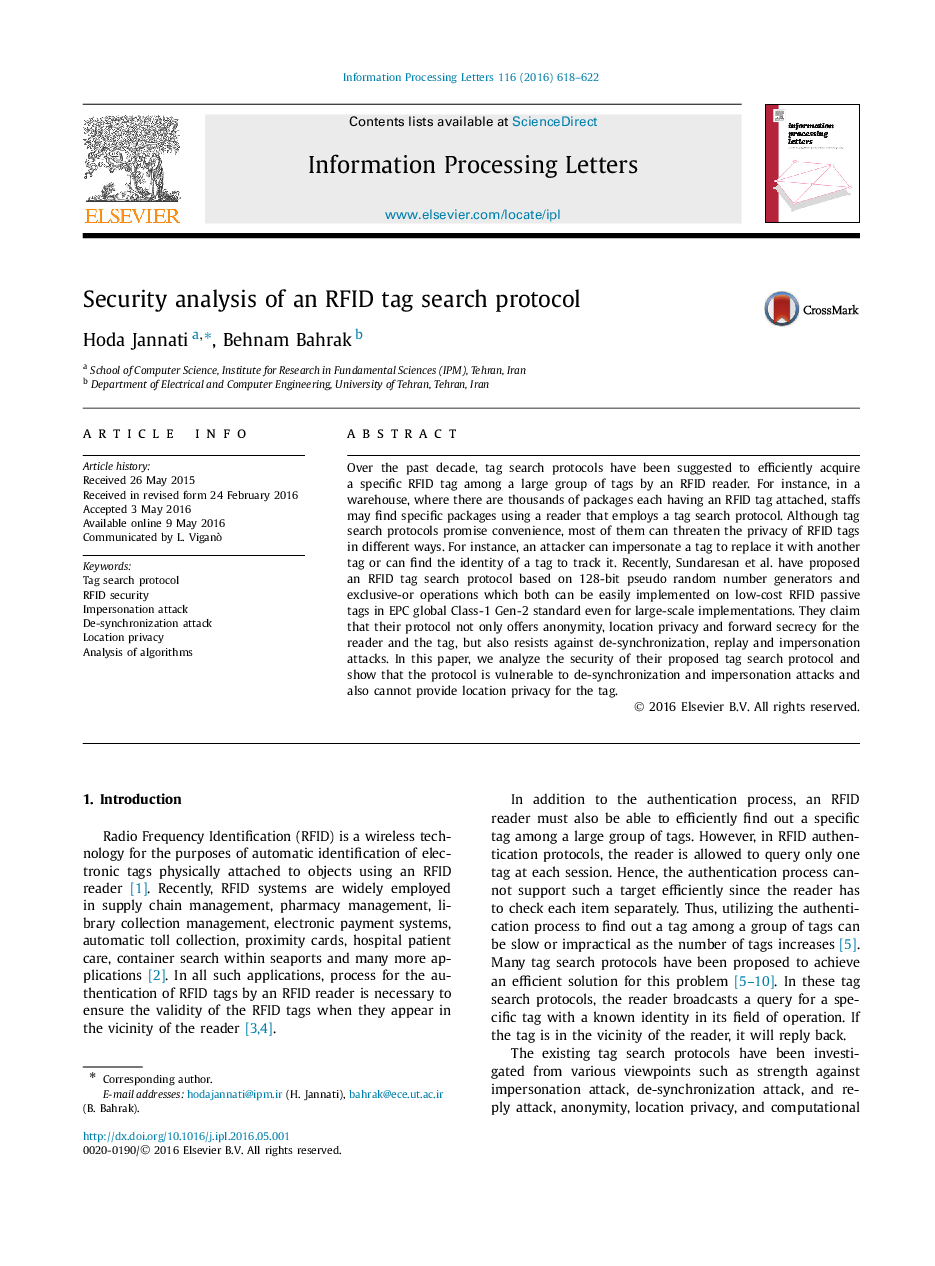| Article ID | Journal | Published Year | Pages | File Type |
|---|---|---|---|---|
| 427025 | Information Processing Letters | 2016 | 5 Pages |
•The security of the RFID tag search protocol proposed by Sundaresan et al. is analyzed.•We challenge Sundaresan et al.'s claim about the robustness of their protocol against desynchronization and impersonation attacks.•We also show that the protocol cannot preserve tag location privacy.
Over the past decade, tag search protocols have been suggested to efficiently acquire a specific RFID tag among a large group of tags by an RFID reader. For instance, in a warehouse, where there are thousands of packages each having an RFID tag attached, staffs may find specific packages using a reader that employs a tag search protocol. Although tag search protocols promise convenience, most of them can threaten the privacy of RFID tags in different ways. For instance, an attacker can impersonate a tag to replace it with another tag or can find the identity of a tag to track it. Recently, Sundaresan et al. have proposed an RFID tag search protocol based on 128-bit pseudo random number generators and exclusive-or operations which both can be easily implemented on low-cost RFID passive tags in EPC global Class-1 Gen-2 standard even for large-scale implementations. They claim that their protocol not only offers anonymity, location privacy and forward secrecy for the reader and the tag, but also resists against de-synchronization, replay and impersonation attacks. In this paper, we analyze the security of their proposed tag search protocol and show that the protocol is vulnerable to de-synchronization and impersonation attacks and also cannot provide location privacy for the tag.
